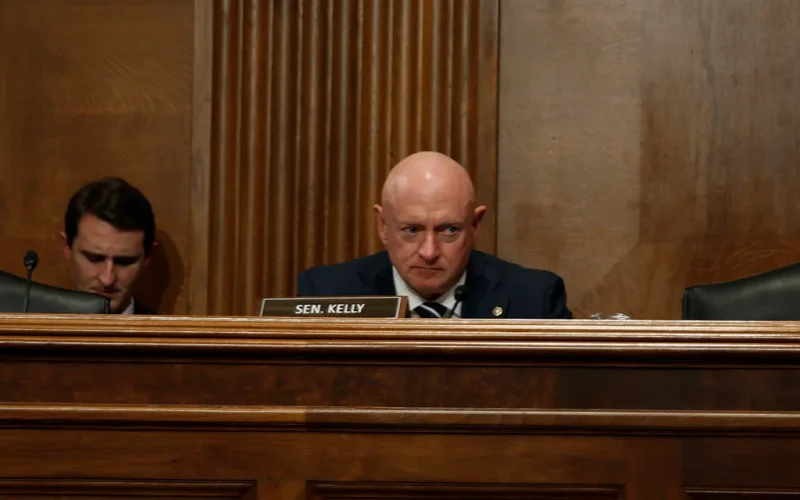
Arizona Secretary of State Michele Reagan said Monday that the state will not comply with a request from the Presidential Advisory Commission on Election Integrity for information on the state’s 3.6 million registered voters.
Reagan, in a letter released Monday, said that while she stands ready to assist the White House panel in its work to assure election integrity, its request for data “could implicate serious privacy concerns.”
She follows the lead of several other states that refused the request, made to all 50 secretaries of state, for voters’ names, dates of birth, addresses, political affiliation, vote history, any felony records and the last four digits of Social Security numbers.
Reagan had indicated Friday that her office would share some limited information with the panel, which is probing allegations of voting irregularities that President Donald Trump claims could have resulted in millions of illegally cast ballots in 2016.
But a spokesman for Reagan said that after her office received the official request from the commission in the mail Monday, security concerns led her to respond with her letter rejecting the request.
“Without any explanation how Arizona’s voter information would be safeguarded or what security protocols the commission has put in place, I cannot in good conscience release Arizonans’ sensitive voter data for this hastily organized experiment,” Reagan’s letter said.
“For reasons outlined in this letter, therefore, I have directed my staff to withhold any provision of voter registration records based on the best interests of the state of Arizona,” the letter said.
The commission’s letter was sent Thursday by Kansas Secretary of State Kris Kobach, vice chairman of the commission appointed by President Donald Trump, who has repeatedly claimed that as many as 5 million votes were cast illegally in the 2016 presidential election.
Democratic presidential nominee Hillary Clinton won 2.8 million more votes than Trump in that race, but still lost the presidency because Trump won the Electoral College vote by a solid 304-227.
Kobach’s letter asked secretaries of state for input on how they would improve election integrity as well as any evidence of voter fraud in their states.
Reagan, like most other secretaries of state, said after the president raised allegations of voter fraud earlier this year that she was confident there was nothing nefarious in the 2016 results.
Most experts agree with the secretaries of state, saying there has been no evidence of voter fraud on the scale suggested by Trump. The president’s May 11 executive order creating the commission makes no mention of fraud in the last election, but directs the commission to find ways to boost the “people’s confidence in the integrity of the voting processes used in federal elections.”
In his letter to the secretaries, Kobach said the commission is setting out to identify laws and policies that either enhance or undermine confidence in federal elections processes.
But some civil rights groups remain skeptical of the commission and believe it will push for voter suppression in the future. They are also wary of Kobach, who was called the “King of Voter Suppression” by the American Civil Liberties Union for his aggressive pursuit of voter fraud that he claims exists.
Federal courts have ruled that Kobach’s claim of voter fraud in Kansas was pure speculation and said his efforts amount to “mass denial” of voters. The ACLU charges that Kobach’s strict voter registration policies are little more than attempts at voter suppression.
Connecticut Secretary of State Denise Merrill, the president of the National Association of Secretaries of State, said Kobach has a “lengthy record of illegally disenfranchising eligible voters in Kansas.”
While she said last week that she plans to submit the requested information for the sake of transparency, Merrill said she found it “very difficult” to have confidence in the commission, noting that courts have repudiated Kobach’s “methods on multiple occasions.”
In Arizona, most of the requested information is publicly available to a member of the public. But Reagan said this “appears to be no normal request,” noting that gathering all the nation’s voter information in one place could make the data susceptible to cybercriminals.
She added that the state meets the security requirements of the National Voter Registration Act and checks reports of double-voting through the Interstate Voter Registration Crosscheck Program. For that reason, her office said, she was skeptical that turning over the information would help reveal any voting vulnerabilities.
Not all secretaries of state are soured on the commission’s mission, however.
New Hampshire Secretary of State Bill Gardner, a Democrat who has a seat on the presidential commission, told a local news station that he was impressed with Vice President Mike Pence’s call with members. The vice president is chairman of the panel.
Pence made it clear on that call he expected members to “search for the facts” and that there should be no preconceived notions of the level of fraud in federal elections, Gardner said. “He emphasized bipartisanship and working together.”







